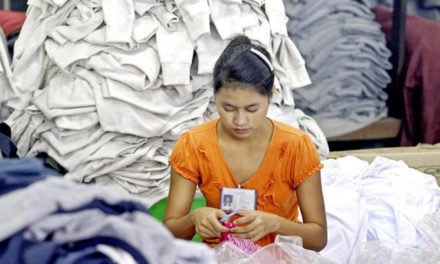
Data and analytics company GlobalData says garment factories need to invest in reskilling workers for the digital age if they hope to retain business in a world increasingly concerned with sustainability and social welfare.
Hannah Abdulla, GlobalData’s Apparel Correspondent, says digital processes – such as 3D design, automation and artificial intelligence – have the potential to help meet the sustainability requirements of brands and consumers. She warns that they could also cause “hundreds of thousands of job losses” as traditional garment manufacturing skills become obsolete but says new opportunities could replace them.
She said: “The coronavirus pandemic has dramatically sped up the garment industry’s tech-shift and brands know that to operate in a sustainable and socially-conscious way, the adoption of technologies such as artificial intelligence, 3D design and automation is now a necessity and no longer just nice-to-have.”
Abdulla pointed to a recent GlobalData study which revealed that eight-out-of-ten of executives, including those from the apparel sector, said their businesses were not prepared for digital disruption. However, she said digital processes carried huge potential, such as reducing waste at the production stage, which was important to brands who were keenly aware of consumers’ growing environmental concerns.
Abdulla continued: “The opportunity is colossal, but supplier factories risk being left behind if workers are not upskilled for this digital shift. “It’s going to require a whole new skill set to the ones workers in major garment manufacturing hubs like India, Cambodia and Indonesia have at present.
“The investment must focus on on-the-job training and skills development. The shift could result in hundreds of thousands of job losses as traditional garment manufacturing skills become obsolete.
“Yet, it could also see displaced workers move into new jobs if they have the skills required to do so, which could ultimately benefit economies. This shift is happening, and it’s happening faster than one might have expected this time last year. The time to get ahead is now.”





















